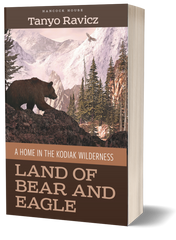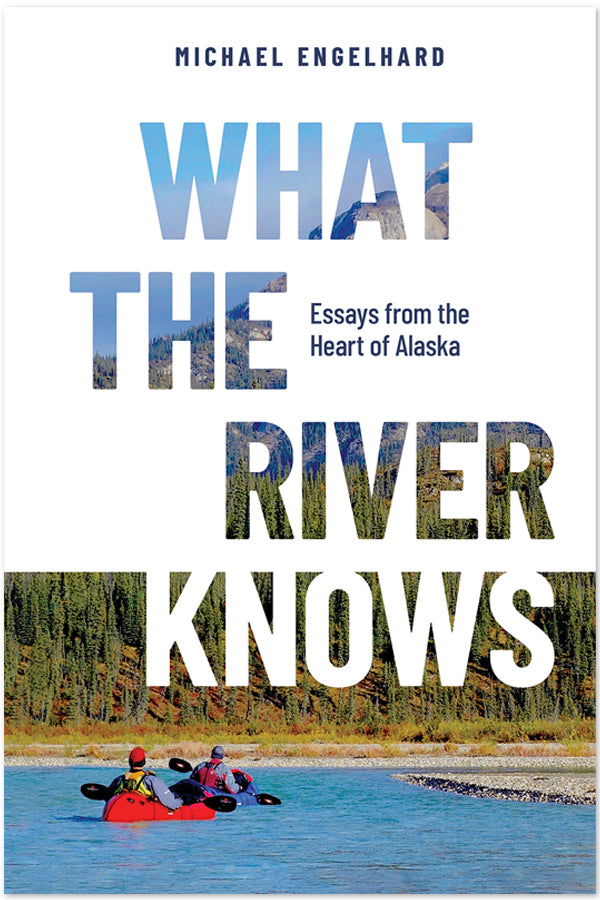

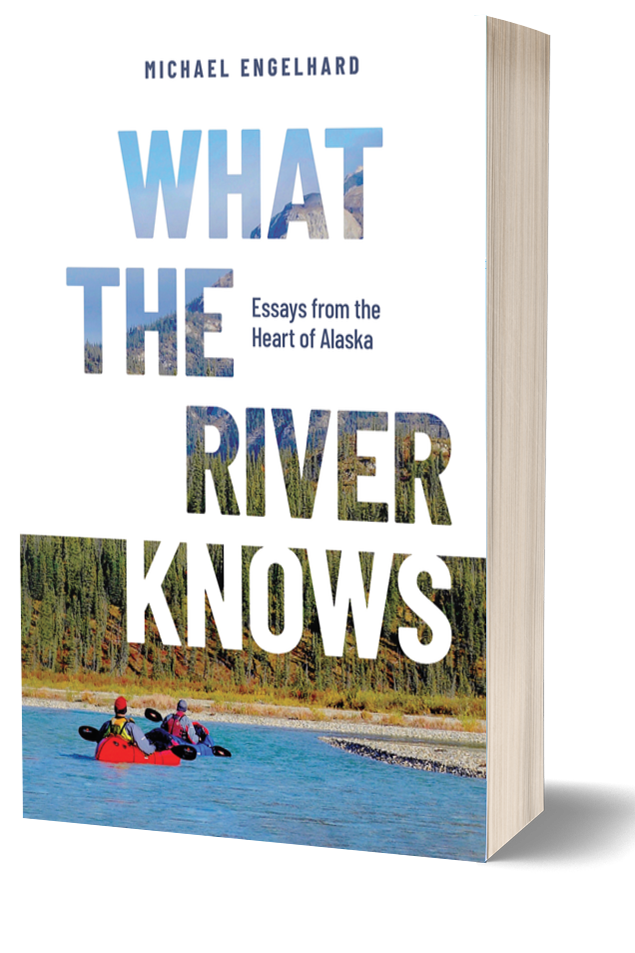
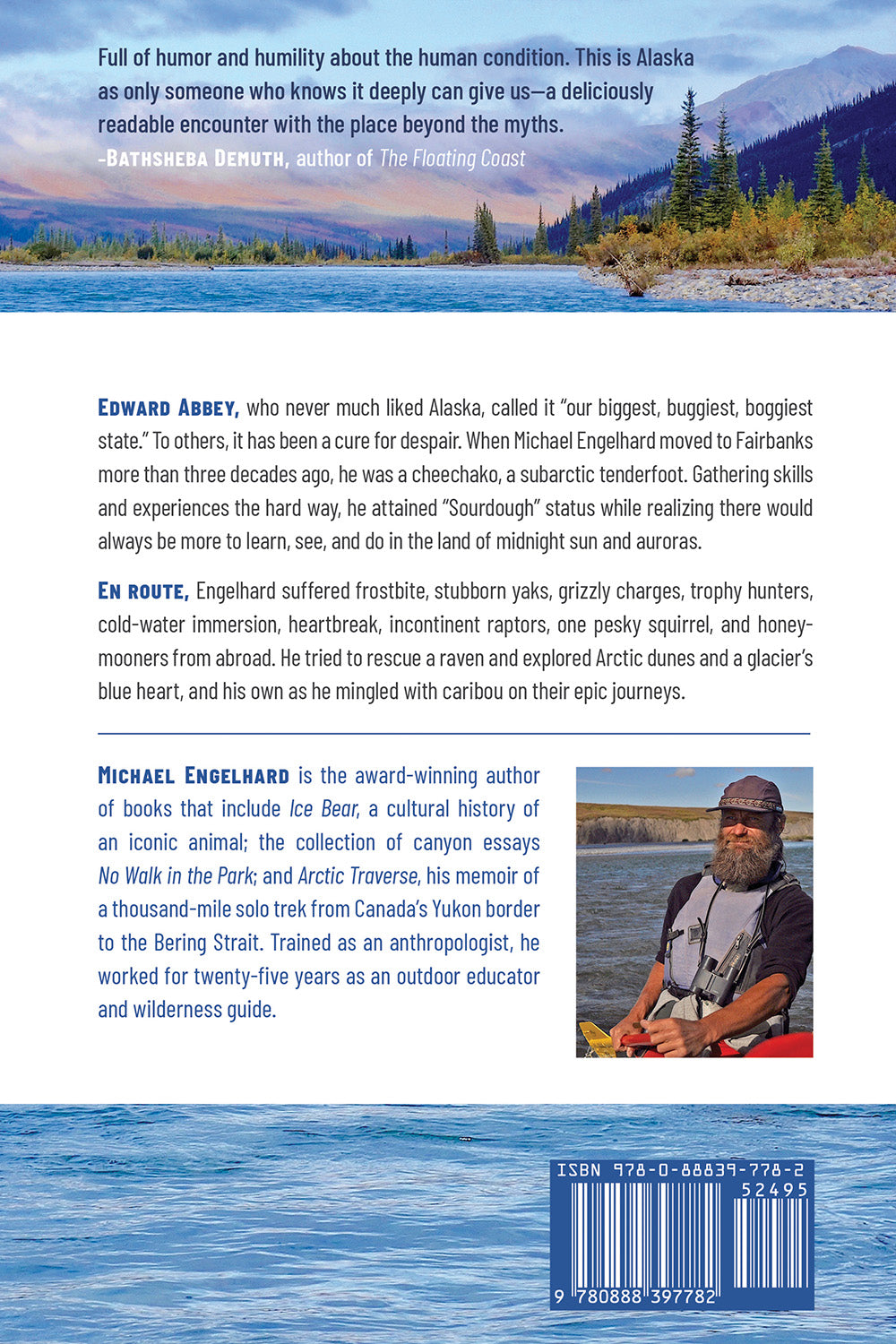
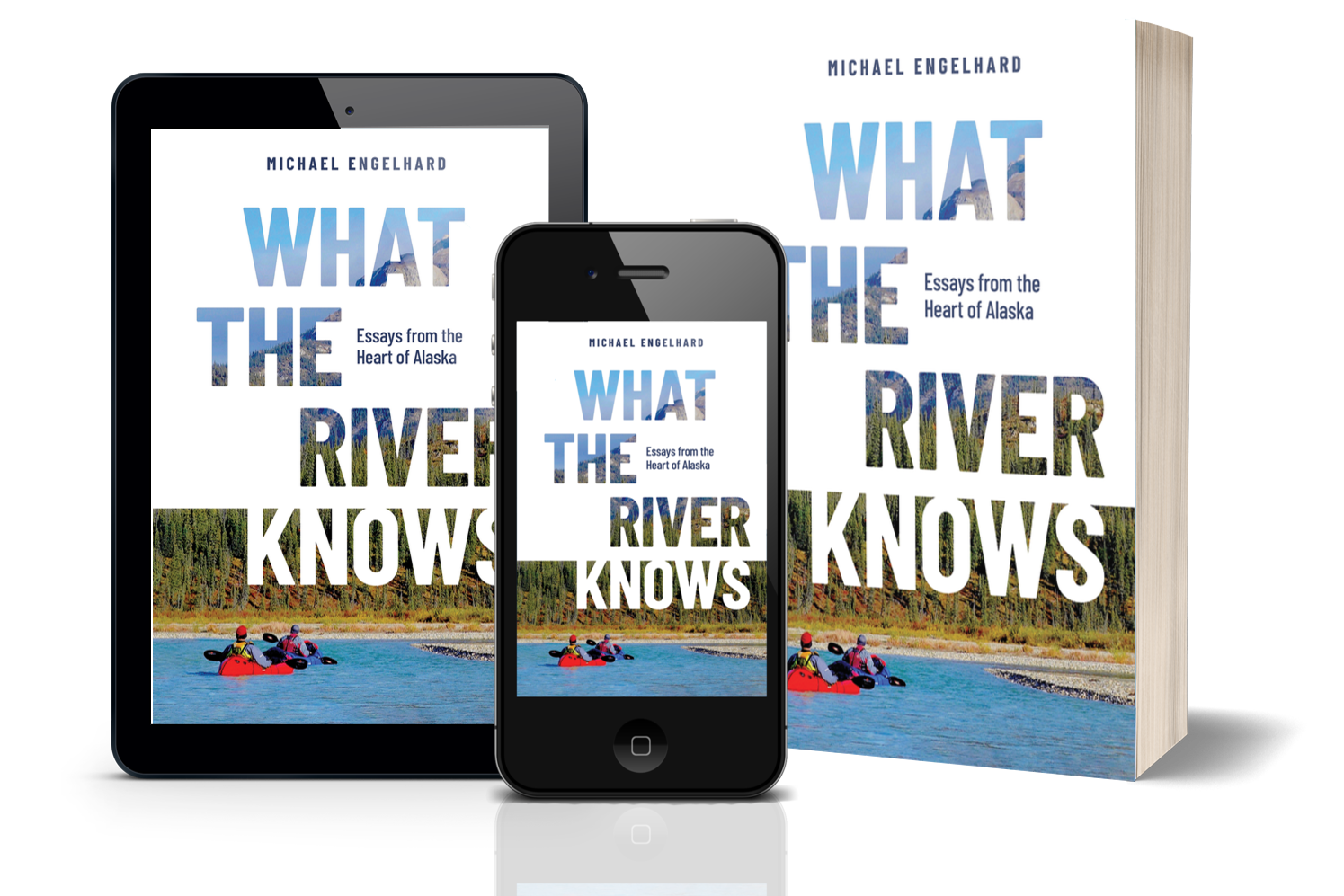
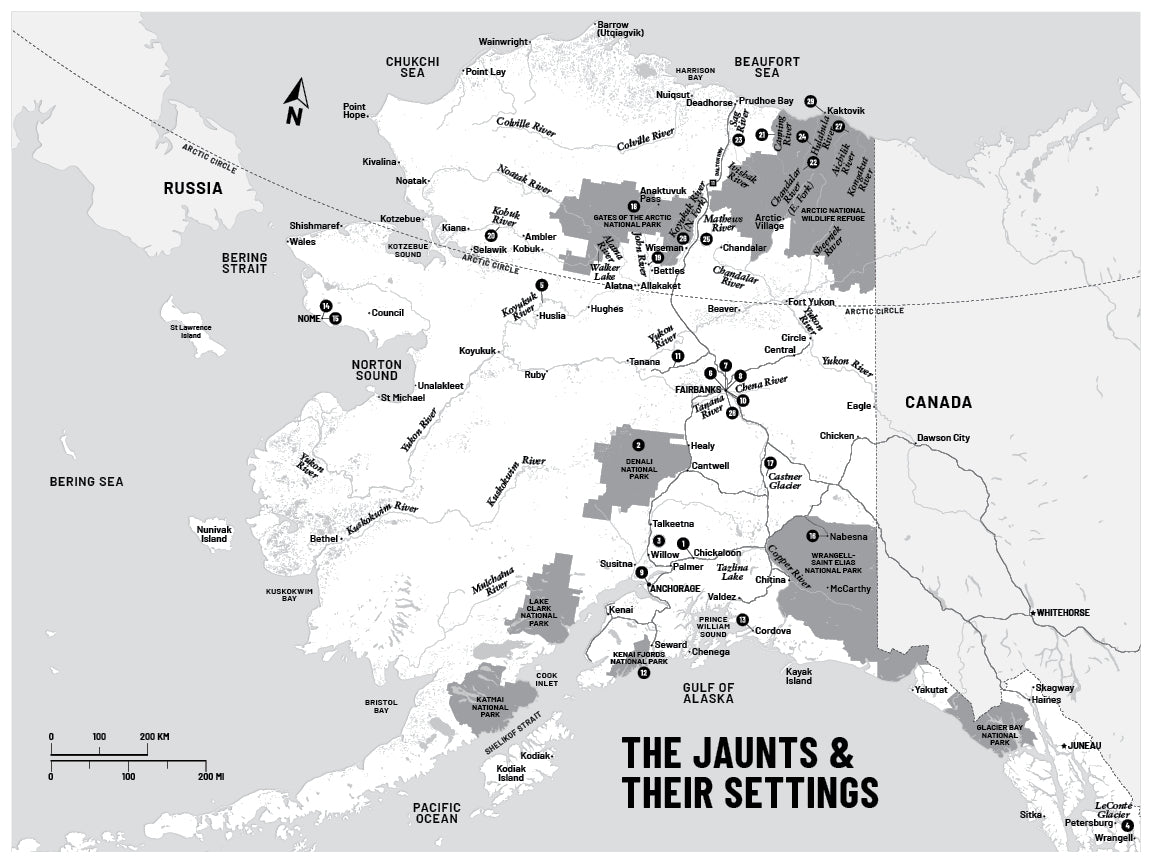
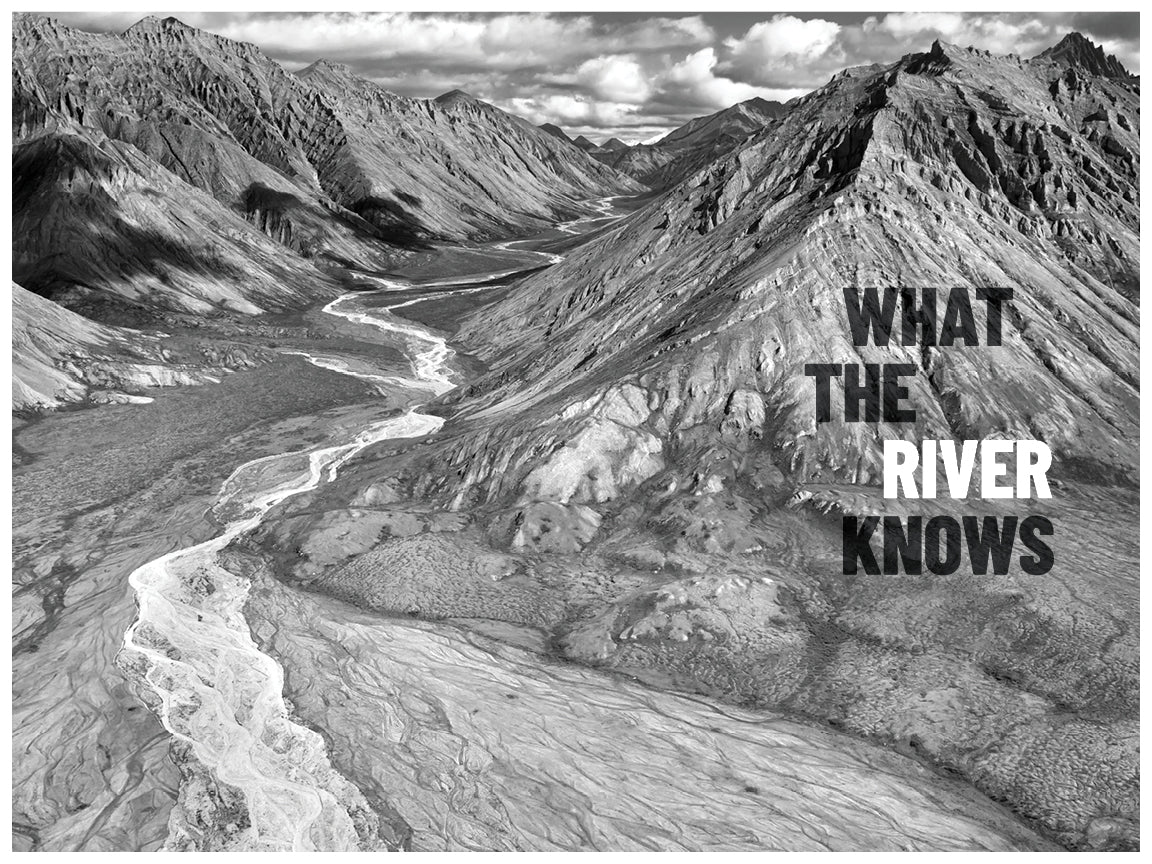
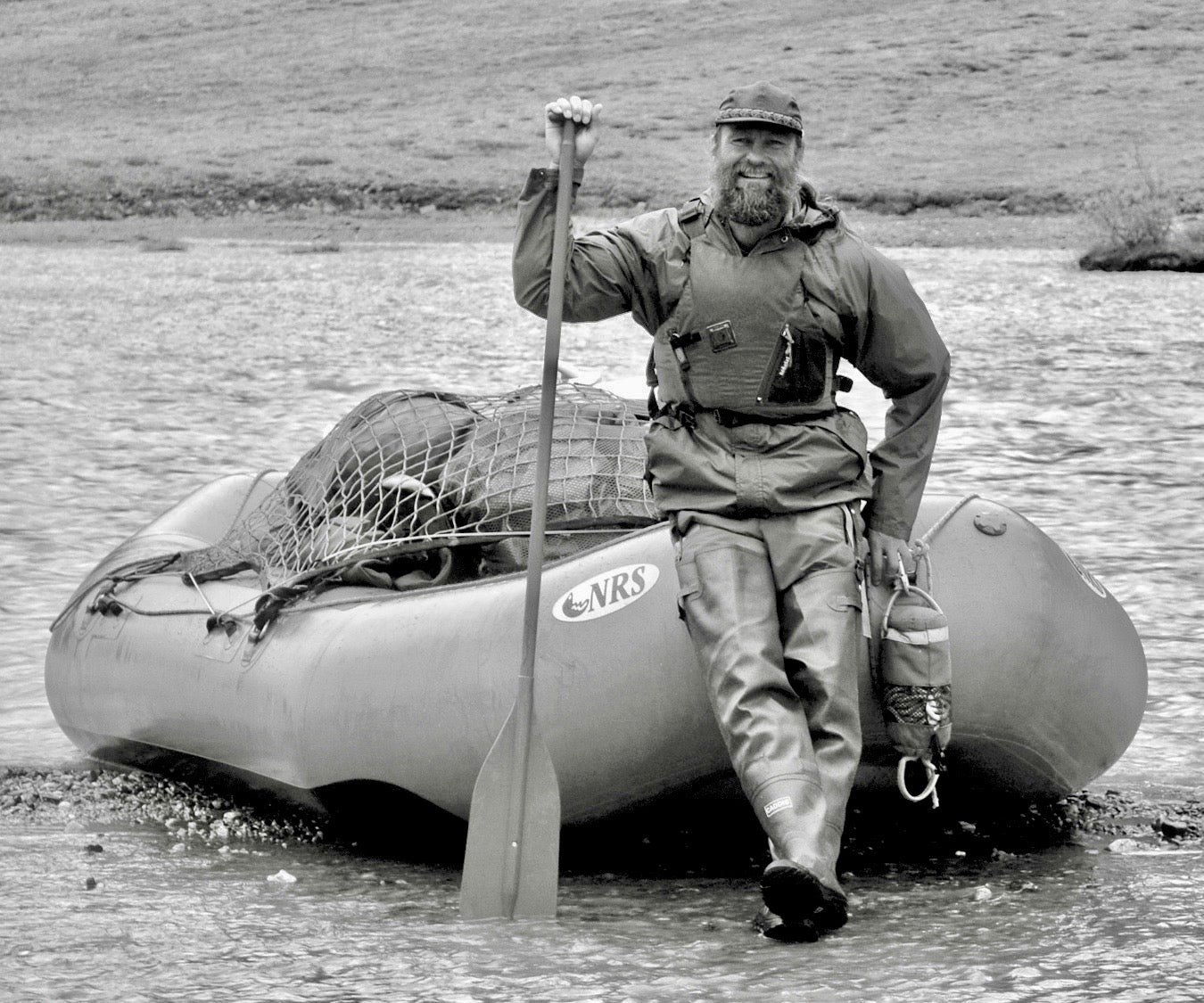
What the River Knows: Essays from the Heart of Alaska
Details
By: Michael Engelhard
ISBN: 978-0-88839-778-2 [Trade Paperback]
ISBN: 978-0-88839-800-0 [Trade Hardcover]
ISBN: 978-0-88839-779-9 [eBook]
Binding: Trade Paper
Size: 6" X 9"
Pages: 320
Illustrations/Photos: 2
Publication Date: 2024
Description
Edward Abbey, who never much liked Alaska, called it “our biggest, buggiest, boggiest state.” To others, it has been a cure for despair. When Michael Engelhard moved to Fairbanks more than three decades ago, he was a cheechako, a subarctic tenderfoot. Gathering skills and experiences the hard way, he attained “Sourdough” status while realizing there would always be more to learn, see, and do in the land of midnight sun and auroras.
En route, Engelhard suffered frostbite, stubborn yaks, grizzly charges, trophy hunters, cold-water immersion, heartbreak, incontinent raptors, one pesky squirrel, and honeymooners from abroad. He tried to rescue a raven and explored Arctic dunes and a glacier’s blue heart, and his own as he mingled with caribou on their epic journeys.
Author Biography
Michael Engelhard worked for 25 years as an outdoor instructor and wilderness guide in Alaska and the Canyon Country. He received a Master’s degree in cultural anthropology from the University of Alaska, Fairbanks, where he also taught very briefly—indoor classrooms just weren’t his thing.
He is the recipient of a Rasmuson Individual Artist Award, a Foreword INDIES and Independent Publisher Book Award, and three Alaska Press Club Awards. His books include Ice Bear: The Cultural History of an Arctic Icon; his account of a solo trip from the Canada border to the Bering Sea, Arctic Traverse: A Thousand-Mile Summer of Trekking the Brooks Range; and No Walk in the Park: Maunderings and Meanderings of a Canyon Guide.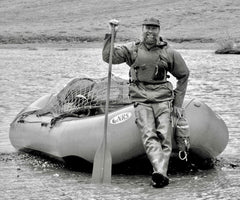
A Luddite fence sitter and migrant by training and inclination, he moves wherever his needs are met best, just like the people and critters he so admires.
Book Reviews
“Engelhard not only heeds the call of the wild, but also provides eloquent descriptions of its ever-diminishing decibel level."
— Lawrence Millman, author of The Last Speaker of Bear
“A compelling account of life on the frozen edge, serving as a literary conduit between North and South."
— Gloria Dickie, author of Eight Bears
“Engelhard’s self-deprecating northern odyssey takes him from the slopes of Denali, to the pages of a magazine peddling lonely Alaskan men. He guides snobby bear hunters on Kodiak Island, negotiates class IV rapids, goes head to head with thieving squirrels—and loses. Along the way he pokes holes in the myth of the stoic Alaska Man with humor and authenticity."
— Andy Hall, author of Denali’s Howl
“Bound to become a new classic of the outdoors. Sure to be cherished by all who love Alaska and who long for wilderness.”
— Bill Streever, bestselling author of Cold
“Engelhard runs rapids and ascends Arctic peaks not in pursuit of accomplishment, but, rather, perspective—on human folly, amid nature’s majesty in the Great North.”
— Ben McGrath, author of Riverman
“The verve, humor, sympathy, and passion of Engelhard’s writing help us annihilate the distance separating us from the Alaskan wild.”
— Christopher Norment, author of Return to Warden’s Grove
“Evocative, erudite, and immersive.”
— Nancy Campbell, author of The Library of Ice
“Takes the reader through adventures in the wild and of the heart with an engaging combination of wit and expertise.”
— Lara Messersmith-Glavin, author of Spirit Things
“Engelhard manages something rarely even attempted in outdoor literature: stories focused not on the death-defying prowess of the adventurer, but on the wild glory of place.”
— Erin McKittrick, author of A Long Trek Home
